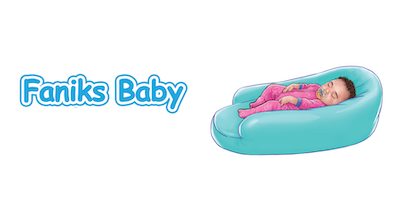Colic, Infantile colic
What is colic?
Infantile colic is when a baby cries recurrently for prolonged periods for no apparent reasons and after thorough investigation.
The strict definition is when a healthy baby less than three months for no apparent reason, cries recurrently and excessively for more than three hours per day and this occurs more than three days a week.
What are the symptoms of colic?
Colic usually occurs in an otherwise healthy baby between 3 weeks and 3 months. The colic cry is usually louder and higher in pitch than regular cry. It is usually in the evenings or at night, and often described as more intense or disturbing than regular cry. Parents are often not able to comfort or soothe their baby during a bout of colic. Babies may show signs of increased muscle tone when they have colic, such as drawing their legs up, clenching their fists; they may stiffening up or arch their backs.
What causes colic?
Colic cry usually has no apparent cause after investigation. Doctors often don’t know exactly what causes colic but they believe colic is related to the immaturity of the baby’s intestine. Most explanations suspect food or feeding related causes, such as overfeeding, underfeeding, inappropriate feeding, indigestion, excessive gas, milk protein intolerance, lactose intolerance etc. Other possible explanations include interactions between the baby’s environments, immaturity of the stomach and baby’s temperament such as overstimulation of the baby by the environment or hypersensitivity of the baby. Maternal tobacco in pregnancy has also been associated with infantile colic.
What can I do to prevent colic?
There is really not a lot that you can do to prevent colic if your baby will have it. Make sure that the cause of your baby’s cry is not food/feeding related. Don’t smoke during or after pregnancy.
What can I do to treat colic?
Changing your baby’s feeding position and reflux precautions may help. Other Common tips recommended by uptodate to decrease colic includes:
• Change your baby's bottle or nipple.
• Feed him or her in a sitting-up position and burp him or her often.
• Carry your baby more during the day in your arms, a sling, or a front carrier
• Put your baby in his or her car seat, and put the car seat in a safe place near a dishwasher, clothes dryer, or other source of "white noise"
• Take your baby for a ride in the car
• Give your baby a pacifier
• Put your baby in a baby swing
• Massage your baby's belly
• Swaddle your baby
• Put a white noise or heartbeat machine near your baby
• Put a warm water bottle on your baby's belly
(Make sure the water is not too hot)
• Give your baby a warm bath
• If the above interventions do not work, you can try:
• Changing your baby's formula from cow's milk to predigested milk
• Breast-feeding is often recommended for its benefits and better tolerance on the baby’s stomach.
• If you breastfeed, try avoiding certain food groups, such as dairy (milk-based), eggs, nuts, and wheat. To do this, stop eating one of these types of foods for 1 week, and see if your baby's colic improves. If it does, keep that type of food out of your diet. If the colic does not improve, you can restart that food and try stopping another one.
If conservative measures fail, you should talk to your doctor before trying various complementary medicines such as gripe water and infant gas drops. These medicines do not always work and should be used cautiously in babies.
When will colic go away?
Colic usually goes away after your baby is 3-4 months. Excessive unexplained crying in a baby after 4 months should prompt the search for other underlying reasons and a visit to your pediatrician.
It is important to talk to your doctor if your baby’s cry doesn’t resolve spontaneously, because excessive crying is also the baby’s response to several other illnesses like Gastroesophageal reflux, infection, trauma and hernia.



